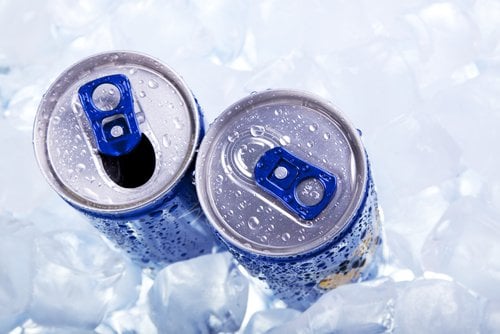Bad Energy
Drinks that promise a quick boost may deliver danger- especially for the young

They're everywhere these days—“energy drinks” marketed under a variety of brands that purport to give you a quick boost of get-up-and-go. But a spate of adverse and sometimes deadly reactions to these drinks has health experts warning everyone, especially children, to steer clear. The key ingredient in these drinks is caffeine. But one problem is that you don’t know how much of this powerful stimulant is in each drink.
Some products don’t quantify caffeine content on their labels; others have been found to contain more caffeine than reported. “And certain ingredients in these drinks, including green tea extract, coffee extract, cola nut, cocoa and guarana, may have two to three times the caffeine found in coffee beans,” says Stephen Peterson, M.D., Section Chief of General Internal Medicine and Associate Director of the Department of Medicine at Westchester Medical Center.
Caffeine overdoses, he says, can be toxic to the heart, causing arrhythmia, palpitations and chest pains. They can also lead to dizziness, insomnia, agitation and anxiety, headaches and withdrawal symptoms. Many energy drinks also have a lot of sugar in the form of high-fructose corn syrup, which is linked to obesity. In children and teenagers, too much caffeine can also raise the risk of liver, kidney and brain damage as well as mood and personality disorders, says Gilberto Velez, M.D., Chief of Adolescent Medicine at Maria Fareri Children’s Hospital at Westchester Medical Center.
“Another problem is teens chasing alcohol with energy drinks so they can drink more,” he says. Reports released in November by the U.S. Food and Drug Administration bring to 13 the number of deaths “possibly” associated with just two brands of these drinks since 2009. In all, the FDA has received reports of 18 related deaths and more than 150 injuries.
Until these products are better regulated, both doctors recommend avoiding them entirely. “Caffeine has no beneficial effect in children and is potentially dangerous,” says Dr. Velez. For adults, 100 milligrams to 200 milligrams of caffeine a day—the amount found in a couple of cups of coffee—is considered moderate, Dr. Peterson says. But energy drinks may have as much as 500 mg or more.
THE GROWING ABUSE OF ENERGY DRINKS
According to a report from the U.S. Substance Abuse and Mental Health Services Administration: There was a more than tenfold increase from 2005 (1,128) to 2009 (13,114) in emergency-room visits linked to energy drinks in the U.S. While 77 percent of these visits involved adults ages 18 to 39, teens 12 to 17 accounted for 11 percent. Male patients figured in 64 percent of these ER visits. In some 44 percent of these ER visits, energy drinks had been combined with alcohol or other drugs.
Related Read: Water Wisdom

